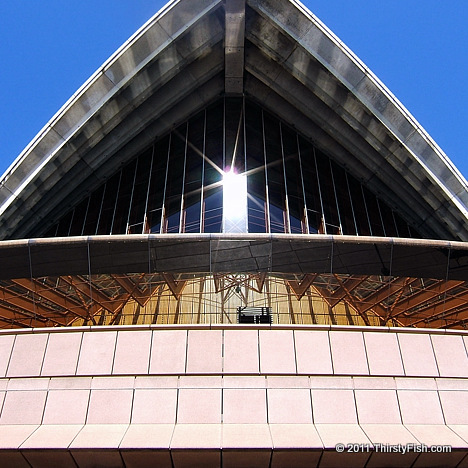Sydney Opera House / 30.000 Years

It's been a long time since I was in Sydney. This photo was taken by a friend who took a trip there few years ago.
Sydney is the largest and the most recognizable city in Australia. Before it was founded as a British convict settlement in 1788, the area was inhabited by indigenous Australians for at least 30,000 years. After the arrival of the settlers, thousands of Aborigines died due to smallpox or possibly chicken pox. After the American Revolution, Australia and a number of other islands were used as penal colonies by the British Empire. In 1842, Sydney officially became the first city in Australia, and by the early 20th century it had a population of over a million. Today, it is a multicultural city of 4.2 million residents, with 32% of them having been born overseas.
Depopulation of indigenous peoples due to disease, both in the Americas and elsewhere is an all too common and bitter fact of history. Additionally, imperialism and colonialism amounted to the killing and even genocide of indigenous people all over the world, and one can argue that it still does today in the form of neocolonialism. The paradox of plenty?
Talk about straying off topic. How does one go from one the most impressive and recognizable buildings in the world, The Sydney Opera House, to colonial genocide? Well, why should we feel the need to talk only about our accomplishments? Where this Opera House stands, a people and a culture that lived for over 30,000 years, all but disappeared in the last 200. Unfortunately, we can't photograph the past! This site after all is about imagery, not photography.
Song of the Day: Down Under - Men At Work (1981)
Posted
- Mon 2011-12-26
Captured
- 2007-09-01
- Sydney, Australia


